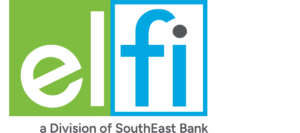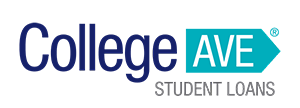Does it seem like you’ll never get rid of your student loans? If so, you may be ready to learn the pros and cons of paying off student loans early.
Feeling stuck and hindered by student loan debt is a common feeling. According to One Wisconsin Institute, survey respondents reported that it took over 20 years to repay their education debt. If you graduated when you were 21, that means you’d still be making payments in your forties.
Sounds terrible, right?
Paying off your student loans early can be a smart strategy so you can focus your finances on other goals, while saving money on interest. However, doing so means making some sacrifices — and it might not be a good idea for everyone.
Should you pay off student loan debt early? Continue reading to find out if it’s right for you.
Can you pay off student loans early?
Can you repay student loans early is a much different question than should you pay off student loans early.
But the simple answer is: Yes, of course you can! Paying off school loans early is a strategy thousands of student loan borrowers take advantage of.
Is there any benefit to paying off student loans early? By having a plan in place to pay your loans sooner than expected, you can experience these benefits (and more):
- Save money on accrued interest costs
- Get rid of student debt once and for all
- Move on to bigger and better financial goals
- Pay less over the life of the loan
Although there are smart reasons to do so, paying student loans early is a personal choice. No one can decide for you if it’s right or wrong — it’s completely dependent on your own financial situation.
You’ll need to understand your personal finances including your monthly income, budget, and expenses to answer the question: Is it wise to pay off student loans early?
To accomplish the goal of ditching student debt faster, you’ll need to have your other finances in order before determining if it’s a good idea — and the right strategy to make it happen.
Common tips for paying off student loans early include:
- Making consistent larger monthly payment than you actually owe
- Using cash windfalls like work bonuses, tax returns, and gifts to put toward your student loan balance
- Putting any spare money left at the end of each month to your student debt
However, all of these ideas depend on having extra funds in one way or another — which may be difficult based on your income and expenses.
Beyond simply putting more money down on your student loans, another excellent alternative for many borrowers is student loan refinancing. More on this popular student loan payoff strategy below.
The 2 Best Companies to Refinance Student Loans
Our Top-Rated Picks for 2024 Offer Low Rates and No Fees

Are there penalties for paying off student loans early?
Before deciding on a specific strategy to get rid of your debt faster, you should find out: Can you pay off a student loan early without a penalty?
The answer depends on who your student loan servicer is. Many student loan servicers — both federal and private — will have different guidelines for paying off debt more quickly than your agreed upon repayment term.
Since you’ll ultimately pay less in accrued interest by paying your loans faster, loan servicers will make more money if you stick with your stated term length. Therefore, some lenders may make it harder to make prepayments. For example, some servicers take additional payments and apply them to future payments, which doesn’t help bring down your interest faster – with these servicers, you will need to specify that the funds should go to your loan principal.
In most circumstances, you won’t receive any penalties or fees for paying your debt early. For example, all of the private student loan lenders who partner with Purefy do not charge any early payment fees whatsoever.
To know for sure “is it good to pay off student loans early”, it’s typically a safe idea to call each of your student loan servicers directly and ask the question: Is there a penalty for paying off student loans early?
Why you should pay off student loans early (pros)
Curious about the pros and cons of paying off student loans early? And what happens if you pay off student loans early?
There are many key advantages of paying off student loans early that can mean big things for your finances and life goals.
If you’re trying to decide is it worth paying off a student loan early or if it makes sense for your situation, consider these major benefits. Or, if your student debt is somewhere between $100K and $200K, consider our tips on how to pay off $100K+ in student loans.
1. You’ll save big money on interest
The biggest impact of paying off student loans early is the money you’ll save. By paying off your debt ahead of schedule, you’ll save money in interest charges — and the savings can be significant.
For example, let’s say you had $30,000 in student loans at 5% interest and a 10-year repayment term. Your minimum payment would be $318, and if you took the full 10 years to repay your loans, you would pay a total of $38,184.
Interest charges would cost you over $8,100.
But let’s say you were determined to pay off your loans in six years, not 10. To pull that off, you’d have to pay $483 per month — just $165 more per month. In total, you’d repay just $34,787.
By paying off your loans early, you would save $3,397 in interest charges.
2. You can focus on other financial goals
Having student loan debt can cause you to put off other goals such as buying a home, starting a business, or even getting married. With your student loans paid off, you’ll have more money and breathing room in your budget to achieve those big life milestones.
3. You can lower your debt-to-income ratio
If you’re planning on buying a home or new car, your debt-to-income (DTI) ratio is important to lenders. It’s how much you have in debt relative to your monthly gross income.
For example, if you made $40,000 per year and had $500 in student loan payments, a $250 car payment, and $1,000 rent, your DTI would be 53%.
In general, lenders want to see a DTI ratio of 43% or less. If you have large student loan payments, that can cause your DTI ratio to be over that limit and will keep you from qualifying for a loan.
By paying off your loans quickly, you can decrease your DTI ratio and increase your chances of getting approved for other loans like a mortgage.
4. You’ll have a weight off your shoulders
A lot of personal finance is about numbers, but it’s also psychological. Knowing that you have a hefty student loan balance hanging over you can be a mental burden. It can cause you a great deal of stress and even sleepless nights.
By paying off your federal loans and paying off private student loans early, you can relieve that stress and have peace of mind that all your student debt is behind you.
Why you may not want to pay off student loans early (cons)
You may be itching to take advantage of the benefits above. But is it better to pay off your student loans early or on schedule?
Understanding the drawbacks and weighing both the pros and cons of paying off student loans early can help you know if it’s a good solution.
1. You’ll lose a tax deduction
When you make payments on your student loans, you can deduct the interest you paid on your taxes up to a maximum of $2,500. You can claim this deduction even if you don’t itemize your deductions, and it will decrease your taxable income.
When you pay off your student loans, you’ll no longer be able to claim this deduction. As a result, you may face a slightly higher tax bill than you expect.
2. It could prevent you from saving for retirement
As a recent college graduate, you’re probably not making a ton of money. To pay off your loans ahead of schedule, you may end up sacrificing contributing to your retirement accounts to free up extra cash for your loan payments. That decision can have long-lasting implications for your future. Investing for your retirement while you’re young is essential for your security.
To put it in perspective, let’s say you had $4,000 when you were 25. If you invested it in a 401(k) or IRA — and never contributed another dime to it — it would be worth $113,879 by the time you turned 67, assuming an 8% annual return.
If you instead used that money to pay off your student loans early, you’d save some money on the interest of the loan. However, your student loans may have low interest rates, so the savings wouldn’t be huge. And you’d lose out on that money’s ability to compound and grow in the stock market.
3. You’ll have to put off building an emergency fund
Most people don’t have an emergency fund. If you’re one of them, you’re one unexpected car repair or medical expense away from ending up in serious debt.
Aggressively paying off your student loans may eat up all your extra cash, making it impossible to stash money away in savings. That tradeoff can leave you in a risky spot.
A good compromise is to set aside $1,000 in an emergency fund before making extra payments on your loans. That amount is a nice cushion for unexpected expenses.
How to pay off student loans early
If you decide that ditching your debt more quickly is the right choice, here are some of the best ways to pay off student loans early.
1. Pick up a side hustle
If you don’t make enough money at your full-time job to make extra payments toward your debt, consider working a side hustle to bring in additional cash. You could drive for rideshare services, walk dogs, deliver groceries, or do errands when you have free time.
2. Make payments during the student loan grace period
If possible, start making payments during your grace period — the time after you graduate before your payments are due. By doing so, you’ll cut down on the interest that accrues, helping you save money and pay off the debt early.
3. Refinance your student loans
To get rid of your loans as quickly as possible, consider student loan refinancing. If you have good credit, you could qualify for a lower interest rate. More of your payment will go toward the principal instead of interest charges, so you’ll pay off the debt sooner.
Should you pay off student loans early? The answer to that question is dependent on you and your goals. By evaluating the pros and cons and thinking about what your aspirations are, you can come up with a repayment strategy that works for you.
If you want to move forward with student loan refinancing, use Purefy’s Compare Rates tool to get quotes from a variety of student loan refinance lenders in one convenient location.
Paying off student loans early: Is it worth it?
Can you pay back student loans early and should you pay off your student loans early?
They’re nuanced questions that truly depend on your personal finance situation, your monthly money needs, and your student loan payoff goals.
But by taking the time to balance the pros and cons of paying off student loans early, you can decide for yourself: Is it better to pay off student loans early or continue as scheduled?
And if student loan refinancing sounds like the quickest way to pay off your debt — while saving the most money — take advantage of Purefy’s Compare Rates tool to easily find your best offer.



















